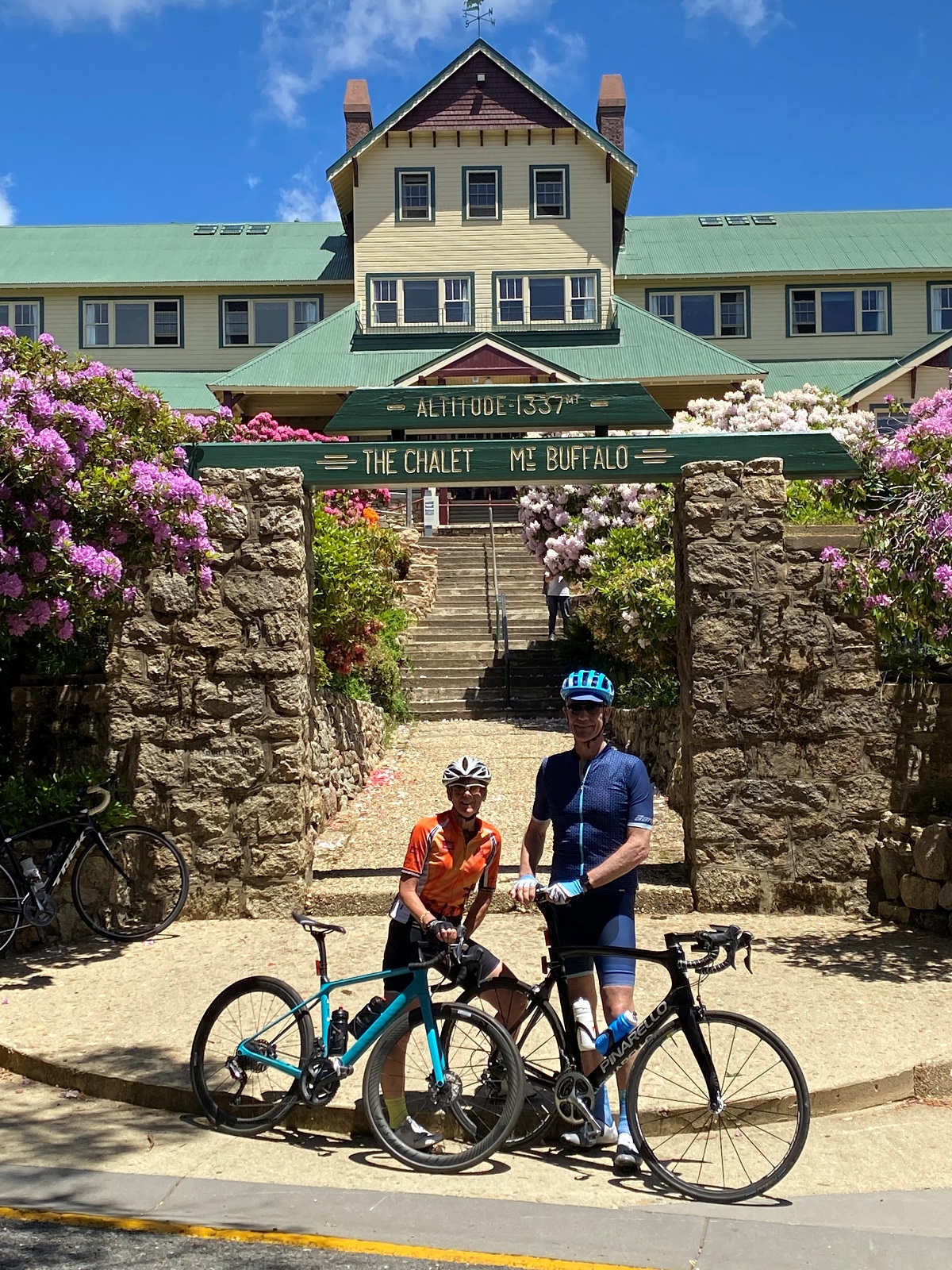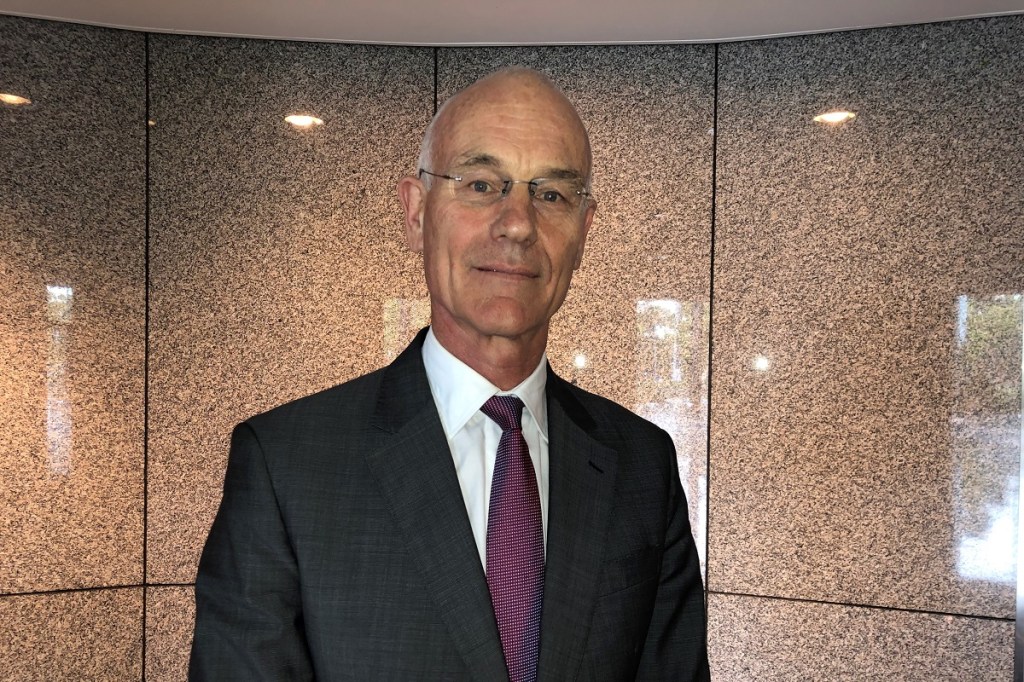Jos de Bruin is the CEO of Master Grocers Australia and has spent much of his career working as an advocate for small family-operated businesses.
For the February/March issue of Convenience & Impulse Retailing Magazine, de Bruin tells us about himself and his journey to becoming a champion for independent retailers.
I was born in Melbourne as the firstborn of five children, the two eldest were boys and the three youngest were girls. It was a big household, and it was challenging at times, but we didn’t know any different.
As kids all my friends played AFL and cricket in the summer, but tennis was my sport and I played that right through until the end of secondary school.
From about the age of 18 I was looking for a team sport to play so I started playing football, and that came quite naturally to me. I ended up playing in Melbourne and interstate right up until my children were born.
As a young family, footy became a great community activity for us. We lived in a very close sporting community and life was all about being with friends and family. I’m not playing footy anymore, but I still watch it with great interest and support the Collingwood Magpies and the Melbourne Storm.
My kids are all grown up now, our eldest daughter is 37, then our boys are 34 and 31. They’ve given us five grandkids – three from our daughter and then one each from both sons. It’s all very exciting, the grandkids are all under five and it’s really added a new dimension to the family. We are very lucky to see a lot of them.

These days my wife and I have developed a passion for bike riding, and we take that quite seriously. We own a couple of great road bikes and it has become a lifestyle for us. We have been overseas on several occasions to follow the Tour de France, the Spanish Tour and the Italian Tour. We have ridden in the French Alps and the Italian Dolomites, and here in Australia we’ve gone to follow the Adelaide Tour Down Under. It is a terrific sport to be involved in from a health and fitness perspective, and it has become a great social activity for us as well.
This may sound corny but there’s a volcano in Hawaii that is renowned for bike riders to climb. I know that there have been a couple of eruptions, so I don’t think we’ll be getting there, but that was on the bucket list.
The other bucket list destination is Mount Fuji in Japan, I’d really love to climb it on a bike. We were supposed to go in May but that was obviously postponed.
In our younger years, my wife and I travelled throughout Europe and the US. We worked in France and learnt to speak French, having only a year 11 base of the language. We then lived and worked in Holland for eight months, where I have family. That was a wonderful experience over three years and when we came back, we had a whole new outlook on what we wanted to do and where we wanted to go.
I had decided that I wanted to get into business development, sales and marketing, so I went to study at university.
I found myself a job with a family-owned company called Cedel Products, and they were very family oriented. They started from scratch and created a national brand in the health and beauty category, within pharmacy at first and then they expanded into supermarkets. That was my first opportunity to really get my teeth into things back in Australia.
I think the great thing about family businesses is they value you, and if you do a good job for the business, they reward you. Being a young guy at the time, I felt that I had to put career before money and from there I decided to join a multinational company as I felt that was where I was going to get the true experience that I would need for my future. I joined a company called Unilever and they were, and still are, an absolute cutting-edge company.
I had a background in grocery and while I was with Unilever I formed some tremendous relationships with the independent sector. I would participate with industry events, charity events, networking events, golf days, and that was where you got to know people personally.
During those days I was dealing with the likes of Coles, Woolworths and Safeway but they were no comparison to the independents because with independents you are dealing with people, people who own their businesses on a day-to-day basis, and you’re able to build a trust and form a terrific relationship with them.
From Unilever I was asked to join Pacific Dunlop in the sporting division, and I became the National Sales Manager for Adidas. It was an interesting time for sporting goods manufacturing in Australia. So, you can imagine going from grocery and into clothing and footwear, it was a big transition for me.
Following that I joined Pepsi, which was recruiting widely to compete against Coca-Cola. No sooner had I taken on that role, Lion (which owned Pepsi at the time) acquired Alan Bond’s brewing business, which included Swan Brewery in Western Australia, Tooheys in NSW and XXXX in Queensland. In Victoria there was no presence of those brands as CUB dominated. There was also no presence in Tasmania or South Australia. So, they asked me to move from Pepsi and to head up the regional side of that business.
I had been in challenging roles before, but I had never come across an industry that was more ruthless than the brewing industry back then, where you had CUB as such a dominant and powerful supplier to an industry that was ruthless in keeping its competitors out. And that certainly took a lot of tenacity.
At the time, the greatest loser in Victoria were the consumers because there was no choice. But we were able to create a very competitive environment. And through that I was able to get back to the roots of the independents.
As time went on, Coles and Woolworths became juggernauts, they just grew bigger and more powerful. They continued to grow by acquisition, and it was very much Coles and Woolworths versus anyone else out there, which happened to be the independents. I became very close to the independents and headed up a lot of industry association initiatives. I headed up the Grocery and Liquor Association, which is a group of industry volunteers who came together to create industry networking events to help raise funds for community needs.
Back in those days, there was the Master Grocers Association of Victoria, which dated back to the 1890s, but independent supermarket operators from around the country wanted the association to go national. So, in 2005 they decided to take it national as Master Grocers Australia and I was invited to apply for the CEO role.
From landing that role I had an uphill curve of learning the back of house support that small businesses needed. To meet those needs we created a baseline of five core pillars/focus areas that would add a huge value to our new national members. These were industrial relations, employment law, advocacy, community, and member benefits.
With the support of a fantastic board from around the country, what we have been able to foster is a fantastic organisation that advocates for family and private businesses only – there are very few organisations that can say that.
I have always believed that you shouldn’t be in a role for more than five years, you should have been able to achieve what you needed to within that timeframe. But I’ve been with MGA for 15 years now and I haven’t felt that way yet.
A career highlight for me was when the Council of Small Business Organisations Australia (COSBOA) recognised me as a ‘small business champion’. This was because I took on a big project, which was competition law reform. It involved changing Section 46 of the Competition and Consumer Act, which would allow the ACCC to stop large corporations from misusing their market power. There has been a lot of anti-competitive behaviour over the last 15-20 years and there was nothing the ACCC could do about it, so we had to amend this law to include what they called ‘the effects test’. This took 10 years of lobbying and to think that we got this over the line was monumental.
Looking forward five years’ time, I would like to see myself moving into more of a consultant role and working on important matters such as advocacy and representation for our members.
We are going through a rethink now on what the next five to 10 years looks like and a part of my role I’m hoping in a couple of years will be to help with that implementation of strategic plans around that, but not as CEO.

